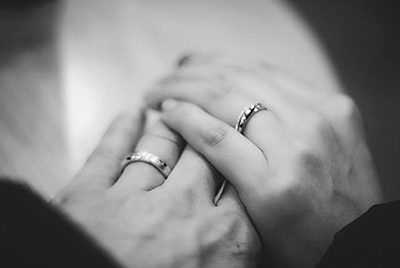
Have you ever wondered how to bring love back to Valentine’s Day?
When I was a kid, I loved Valentine’s Day – the whimsical colours, the chalky-message candy hearts, the box filled with silly cards from all my classmates… but as an adult, I began to buy into Valentine’s Day pressure. Was I getting the right, most thoughtful gift from my sweetie? Did he have something special planned for dinner or flowers?
I really agonized about these things and they become expectations that lead to what expectations always lead to: disappointment. Every year therapists, psychics and astrologers hear from people who are on the brink of desolation because they are still pining for someone who left their life, or because they feel alone and unloved, or because their loved one isn’t meeting their expectations.
How did something that’s supposed to be fun get so dark? Ever since a certain famous card manufacturer started mass producing Valentine cards in 1913 in Kansas City, the world has had an arbitrary way to measure the presence and absence of love. And because comparison takes us away from what we HAVE, it’s given us a way to compare our lives to a story of what should be. The right ring, the right dinner, the right romantic setting, the right person. All that pressure adds up to disappointing bad dates, lonely nights, and worse. How do we stop this madness?
Here are Five Ways to bring LOVE back to Valentine’s day:
What You Never Learned About Boundaries

Setting boundaries can be the most important thing you ever harness to transform your relationships and life … especially when it comes to dating and relationships. True, balanced boundaries are often misunderstood; they’re not about building an impenetrable wall of barbed wire, but about having positive, open energy that keeps life flowing.
Imagine how an ocean flows and thrives in its space and boundaries, but a stagnant rain puddle that doesn’t receive new energy is always evaporating, having increasingly poor boundaries and edges. If you were a fish, which would you prefer to live in? In the ocean you can define your turf, swim and explore and have the resources you need -but in a puddle you don’t have that luxury, you’re always trying hard, gasping for what you need and feverishly trying to stay protected as the puddle shrinks.
Giving Thanks after Thanksgiving: The Real Role of Gratitude

Between the months of October and November, the United States and Canada celebrate “Thanksgiving” – the holiday seemingly designed for uncomfortable conversations with in-laws and turkey (or Tofurky), garlic mashed potatoes, green beans, pumpkin pie and giblet gravy.
The original reasons for “Thanks Giving” celebrations are various; from Martin Frobisher surviving his voyage from England to discover a Northern Passage to the Pacific, or the Pilgrims of Plymouth celebrating an especially good harvest in 1621, to the many many “harvest” celebrations in gratitude for the bounty of the season.
Thanksgiving dinner is over, but Thanks-Giving is also an act that we would all do well to inspire on days that don’t include snapping wishbones or football comas. Giving Thanks and being grateful for what we have, observing the good things in our lives and thinking about what we care about is one of the fastest and surest ways to attract more success and abundance in our lives. Being content and valuing what is HERE NOW is one of the most powerful things we can do to take care of those things which are truly important to us.
Gratitude reduces pain, fear and stress in ourselves and others. We spend most of our lives focusing on what DOESN’T work, what we’re scared of, what we don’t like, what we don’t want to happen that we spend little time reflecting on what is true in the moment.
Halloween and Sugar Skulls; Celebration of Life and Family

Happy Halloween! Lately, I’ve noticed a lot of Mexican skeletons and sugar skulls appearing alongside traditional Halloween decorations. These fun, whimsical figures are popping up everywhere, so I wanted to write more about them and how they can help connect us to the celebration of life, death and our loved ones.
In Mexican and Latin communities throughout the world, “Dia de los Muertos” (Day of the Dead) is observed on November 1st and 2nd in festivities to honour, commune with, pray for, and celebrate deceased loved ones as they visit the physical world in spirit on these special days. Related to the Catholic holidays of All Souls Day and All Saints Day, these celebrations have been tied to societies in pre-Hispanic and ancient Mexico as well.
We Had a Fight, Can I Fix This?

“My boyfriend and I had a terrible fight. I’m so sick of this. Is it over?”
We think of fights as horrible, destructive agents of relationship doom, and we want to avoid them at all costs. From our culture, to our personal histories, we learn arguments are a thing to fear. But what if we could see arguments as both normal and even helpful? Is there an alternative to arguments or a way to create harmony after one has already begun?
What is an argument REALLY?
Arguments are all unique combinations of different energies: misunderstandings, miscommunications, trapped emotions, or projections of past events. But they are also an alarm system that show us where something unhealthy or unworkable has been existing in our relationship in the same way that pain alerts our brain that we’ve touched a hot pot. Arguments highlight whatever we have been afraid or unable to clearly communicate in other ways.
Dating Apocalypse? Finding Love with Online Dating

Earlier this month, the popular dating app Tinder had an epic, thirty post Twitter meltdown in response to a critical Vanity Fair article decrying today’s millennial “hook-up” culture (and apps like Tinder) as responsible for a kind of dating apocalypse.
Those critical of online and mobile dating technology contend that easily accessible sex has replaced human relating and posed a daunting barrier to finding love. They say that with so many opportunities for easily obtainable hook-ups or sex, men (and women) have little impetus or time to seek out serious relationships. Others say that online dating is just not a place where a serious, soulful relationship can be found.
It’s true that online dating can be a pool fraught with creeps and guys who send crude two word questions, and just about everyone knows a funny (or horrible) online dating story. One of the most popular refrains I hear from app weary clients is, “I’m just so over online dating. There’s no good guys!” But does this mean that it’s impossible to find a partner online?
Does He Want to Break Up?

Does He Want to Break Up? Does She want out?
In the Part One article last week, we explored some of the signals that a person wants to be in a relationship with you. In this article, Part Two, we’ll take a look at the signs and signals that a partner wants to end a relationship.
As in the previous article, there’s no cookie-cutter formula that will show you the complexities of each personality and situation but there are a few energetic signatures of fear and withdrawal to look out for in a person who wants to leave a relationship but is afraid to talk about it directly.
Sometimes one or both people wanting out doesn’t really mean a permanent end to the relationship; it can be a crisis signal that there is a serious issue within the relationship that is not being communicated effectively and there can be an opportunity to move forward. However, these signals often mean that an ending is near. It’s not possible to change what isn’t working in a relationship if one partner is unwilling or unable.
Here are the signs that the two of you are headed for a break even if they insist that things are fine, or don’t want to talk about the relationship:
Does He Want a Relationship?

A few years ago I started hearing a new kind of jargon from people seeking romantic guidance, “What are his / her intentions?”
When I first started hearing it, it seemed like a weird question. After all, relationships are organic, flowing and dynamic and people rarely have fixed “intentions,” exact blueprints or robotic instructions of what they want and how they wish to proceed. Nope. Most people (just like you) are trying to understand another person, decide how they fit in their lives and protect their heart from hurt in the process.
I quickly tuned into the fact that what people really wanted to know was whether or not the person they were seeing was interested the same kind of relationship they were. Does he want a relationship? Is she interested in me the same way I am? And while this might have been a more obvious process a few decades ago (don’t people talk openly anymore?) modern dating has made figuring out how another person feels a more complicated and confusing process as dating (and social technology and social media) changes the relationship landscape.
How to Spot a Romantic Intensity Addiction

Imagine a summer romance novel; a delicious story of romance and intrigue wherein our hero or heroine meets a potential partner so daring, dangerous, distant or complicated that their heart-breaking, intense and destructive pairing is the most fascinating and fun read ever.
But imagine if our heroine met a broker with a stable job, a dog and a nice house, and they lived happily ever after instead? BORING!
Even though we live in a culture that pursues balance, prosperity and happiness, there’s a part of all of us that appreciates the dark, passionate, difficult entanglement of drama and intensity.
While passion and deep emotions are a natural part of our human nature and lend to the beauty of our lives, intensity and drama can also be addictive and, in extreme cases, this addiction can destroy relationships and lives.
Everyone likes intensity sometimes, but the relationship intensity-addict seeks out constant sources of excitement, seduction, and the giddy “highs” of sexual or emotional attraction but is never fulfilled or sated by these highs, so they seek them out over and over again in increasingly risky or limiting scenarios. They often see themselves simply as poetic and hopeless romantics until they hit the same walls over and over.
Is He the One I Should Marry?

You have a great boyfriend, he’s met your friends, been home for the holidays to meet your folks, and now you’re embarking on the next steps of your journey together and considering long term commitment, marriage and family.
You’ve been taught through movies and books that you should “just know” and gracefully get on with the business of living happily ever after but in reality, this isn’t always the case. One of the most popular types of questions I encounter as an intuitive are those asked by anxious brides, grooms or people getting ready to get married are, “Is he the one I should marry?” and “how do I know if I’m making the right choice?”
Doubts aren’t always a sign that your partner isn’t right for you, or that you will need to cancel the wedding invitations and fire the florist. Doubts are simply a natural expression of our egos as we try to negotiate unknowns, changes and risks.
An Easy Trick to Keep ‘End-Game’ Fears from Ruining Dating

The End-game.
Your feelings about the ultimate objective of dating can determine whether or not dating is stressful or successful for you. (Who wants to run a marathon if what’s at the finish line is scary?)
Here’s what one woman I worked with did to remedy those fears:
Barbara had always dreamed of a loving relationship. She’d been successful in her career and her intelligence and discipline had earned her advanced degrees and made her a highly sought professional.
Ask a Psychic: Can This Marriage Be Saved?

This week’s question comes from a woman whose marriage has suffered a series of what seem like insurmountable setbacks over the past two years.
She and her husband have been separated for more than a year, after confirmation of his earlier infidelity. She’s filed for divorce and has tried to go through the motions of moving on, but is struggling with that decision.
She still loves her husband and he says he loves her and wants to try again, but hasn’t taken steps to make that happen. In fact he hasn’t kept any of the promises he’s made.
